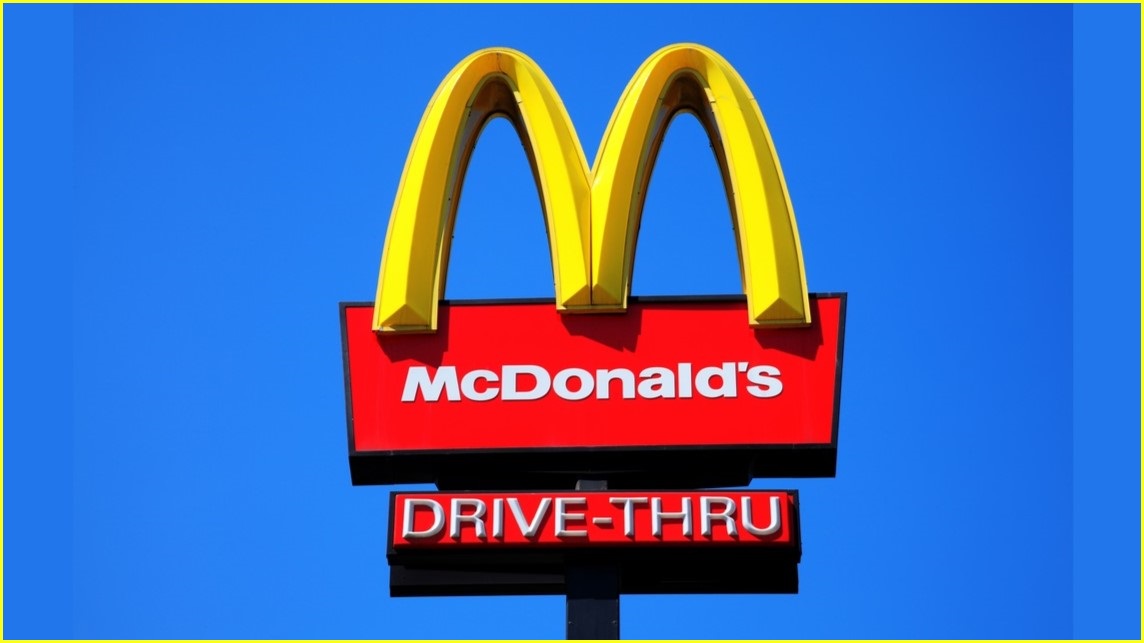McDonald’s is discontinuing a trial of AI-powered ordering technology for drive-thru after droves of absurd errors were shared online.
The fast food giant adopted the technology in the US in 2021 to test out automated artificial intelligence (AI) voice orders, allowing users to converse and place orders with a robotic female voice at drive-thrus.
While McDonald’s was aiming to speed up service and further simplify its operations, the company has ultimately decided to axe the technology from more than 100 participating restaurants after social media users posted droves of comical errors online.
These mishaps are most prevalent on TikTok, where customers filmed water and ice cream being mistaken for butter and ketchup, dessert being spruced up with a topping of bacon, and the AI server brazenly correcting pronunciation of menu items.
One example saw two young women in hysterics as the system rang up an excess of 21 ten-piece chicken McNuggets meals valued at more than USD$200.
“Stop! Stop!” the women said. “The McDonald’s robot is wild.”
McDonald’s has been working to adopt AI since at least 2019, when it acquired startup Apprente for its AI-based voice solutions.
The restaurant chain eventually folded Apprente into its own AI and tech division McD Tech Labs, which itself was sold to technology company IBM in 2021.
This sale saw McDonald’s partner up with IBM in a bid to upscale its efforts in automated, AI-powered ordering
Now, McDonald’s plans to end its IBM-partnership on ‘automated order taking’ (AOT) and shut off the technology “in all restaurants currently testing it” no later than 26 July 2024.
“Through our partnership with IBM, we have captured many learnings and feel there is an opportunity to explore voice-ordering solutions more broadly," McDonald’s told Fox Business.
“IBM remains a trusted partner and we will still utilise many of their products across our global system.”
Too soon to automate
While other prominent US fast food chains such as Taco Bell and Pizza Hut have recently upped their investments in AI, and rivals such as Wendy’s and Carl’s J. have trialled similar AOT technology – Information Age understands McDonald’s is the first to terminate such a trial.
The company’s statistics on the technology appeared favourable – with chief executive Chris Kempczinski previously stating that participating restaurants saw about 85 per cent order accuracy, and only about a fifth of orders needing to be taken by a human employee – but comments from former staff suggest the drive-thru is not ready to be wholly automated.
Mike Haracz, former corporate chef at McDonald’s, suggested the initiative was “obviously” launched to “reduce the amount of actual human employees in the restaurant” and save on costs.
“Well, it is not going according to plan,” he said.
According to Haracz, the technology was going to be showcased at a recent McDonald’s convention in Barcelona, but was hampered by poor performance.
“Apparently, it was a disaster,” he said.
“People would order things, it would be completely wrong. You’d get a thousands of this, a thousand of that.
“I cannot imagine how much money, time and effort was put into it – could be why some of those menu prices are a little higher than we’d like.”
Are customers overreacting?
On TikTok, droves of commenters have criticised McDonald’s AI trial – stating the company will “throw money at anything except paying their employees a livable wage”, or jesting that the AOT is “powered by the same system as the soft-serve ice cream machine” – but conversely, some uploads have seen commenters blame the customers themselves.
One video shows a frustrated customer attempt to order Mountain Dew, only for a medium Coke to appear on the screen – commenters meanwhile observed “McDonald’s don’t sell no damn Mountain Dew” and pointed out issues with the customer’s communication.
“AI require concise commands. It doesn't understand conversational commands. It pulled "coke" out of the sentence,” wrote LainaJoy.
“Definitely you, not AI…” wrote joshkunkel89.
Other botch orders on TikTok similarly tend to contain a lot of cross-talk or specialised requests, suggesting the AI may have performed better given clearer communication.
Meanwhile, Debrah Bourk, enterprise account manager at US consultancy Capricorn Diversified Systems, told Information Age leveraging advanced technology could “enhance order accuracy, reduce customer frustration, and ultimately deliver a better experience”.
Bourk, whose role involves helping ‘quick service restaurants’ (QSRs) integrate technology solutions, said that while the system’s 15 per cent inaccuracies “made their way to social media”, its 85 per cent accuracy rate is nothing to baulk at.
“It's worth noting that this AI system is already outperforming most humans, who aren't even 85 per cent accurate, in my opinion,” said Bourk.
“The key is to ensure you have a strong marketing team to address the 15 per cent margin and positively shape public perception.”
“McDonald's and IBM’s challenges in achieving [85 per cent] system efficiency could actually become a learning opportunity for others,” she added.
Further statements from McDonald’s suggest the termination of its AI trial is more so a hiatus than a permanent end, with the company voicing confidence “that a voice ordering solution for drive-thru will be part of our restaurants’ future”.
"We see tremendous opportunity in advancing our restaurant technology and will continue to evaluate long-term, scalable solutions that will help us make an informed decision on a future voice-ordering solution by the end of the year," McDonald's told FoxBusiness.










